Fiber: Soluble Vs. Insoluble
Most people know it’s recommended to get more fiber in your diet, but do you know the two different types of dietary fiber and the purpose of each?
Fiber is material found in plants that your body cannot digest. Most people know it’s recommended to get more fiber in your diet, but do you know the two different types of dietary fiber and the purpose of each?
Soluble and insoluble fiber perform different roles in improving health. Learn the foods where each type is found, along with the beneficial role they play in the body.
Soluble vs Insoluble Fiber: What’s the Difference?
Soluble Fiber
Soluble fiber absorbs water during digestion and turns into a gel-like substance. During this process, it binds to cholesterol and helps remove it from the body. Soluble fiber also prevents the absorption of some fats. These effects are why foods like oatmeal that are rich in soluble fiber are said to be heart healthy.
Soluble fiber slows digestion and produces softer, bulkier stools that are easier to pass. This effect can help ease constipation or diarrhea. Soluble fiber also feeds good bacteria in the colon, promoting gut health. Slower digestion caused by soluble fiber helps regulate sugar levels in people with diabetes.
Insoluble Fiber
Insoluble fiber does not dissolve in the intestines and passes through relatively intact. It too adds bulk to stool. In this way, it promotes movement through the gastrointestinal tract and is helpful for those experiencing constipation. However, insoluble fiber can trigger or worsen gastrointestinal upset symptoms for some people with irritable bowel syndrome.
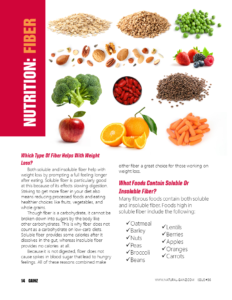
Which Type Of Fiber Helps With Weight Loss?
Both soluble and insoluble fiber help with weight loss by prompting a full feeling longer after eating. Soluble fiber is particularly good at this because of its effects slowing digestion. Striving to get more fiber in your diet also means reducing processed foods and eating healthier choices like fruits, vegetables, and whole grains.
Though fiber is a carbohydrate, it cannot be broken down into sugars by the body like other carbohydrates. This is why fiber does not count as a carbohydrate on low-carb diets. Soluble fiber provides some calories after it dissolves in the gut, whereas insoluble fiber provides no calories at all.
Because it is not digested, fiber does not cause spikes in blood sugar that lead to hungry feelings. All of these reasons combined make either fiber a great choice for those working on weight loss.
What Foods Contain Soluble Or Insoluble Fiber?
Many fibrous foods contain both soluble and insoluble fiber. Foods high in soluble fiber include the following:
- Oatmeal
- Barley
- Nuts
- Peas
- Broccoli
- Beans
- Lentils
- Berries
- Apples
- Oranges
- Carrots
“…be sure to drink plenty of water, which is needed to help fiber move through the gut.”
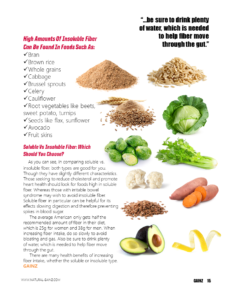
High Amounts Of Insoluble Fiber Can Be Found In Foods Such As:
- Bran
- Brown rice
- Whole grains
- Cabbage
- Brussel sprouts
- Celery
- Cauliflower
- Root vegetables like beets, sweet potato, turnips
- Seeds like flax, sunflower
- Avocado
- Fruit skins
Soluble Vs Insoluble Fiber: Which Should You Choose?
As you can see, in comparing soluble vs. insoluble fiber, both types are good for you. Though they have slightly different characteristics. Those seeking to reduce cholesterol and promote heart health should look for foods high in soluble fiber. Whereas those with irritable bowel syndrome may wish to avoid insoluble fiber. Soluble fiber in particular can be helpful for its effects slowing digestion and therefore preventing spikes in blood sugar.
The average American only gets half the recommended amount of fiber in their diet, which is 25g for women and 38g for men. When increasing fiber intake, do so slowly to avoid bloating and gas. Also be sure to drink plenty of water, which is needed to help fiber move through the gut.
There are many health benefits of increasing fiber intake, whether the soluble or insoluble type.

About the Authors:

GAINZ STAFF
Freelance industry experts from around the world.
Share this post:

New IPL Pro Samantha England Lands Cover of Natural GAINZ Magazine!
“Wow! I never thought when I signed up for the IPL Maryland show that I would earn my Pro Card or that I would get the cover of Natural GAINZ Magazine! Since competing in the IPL, I’ve had so many opportunities. So many doors have opened for me in the fitness world.”

Natural GAINZ Magazine – Get Back On Track After A Setback
…discover fun new ways to work out that will keep you motivated until you reach your goals.
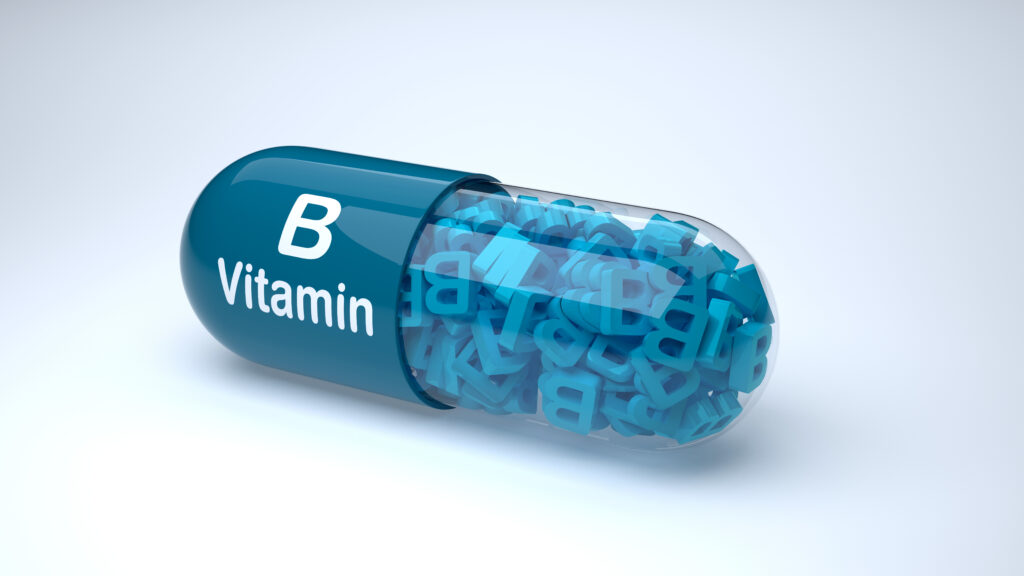
Natural GAINZ Magazine – Five Ways To Get More Vitamin B
Vitamin B deficiency can cause extreme tiredness, depression and other mental health problems, so it’s important to get enough of these essential vitamins.
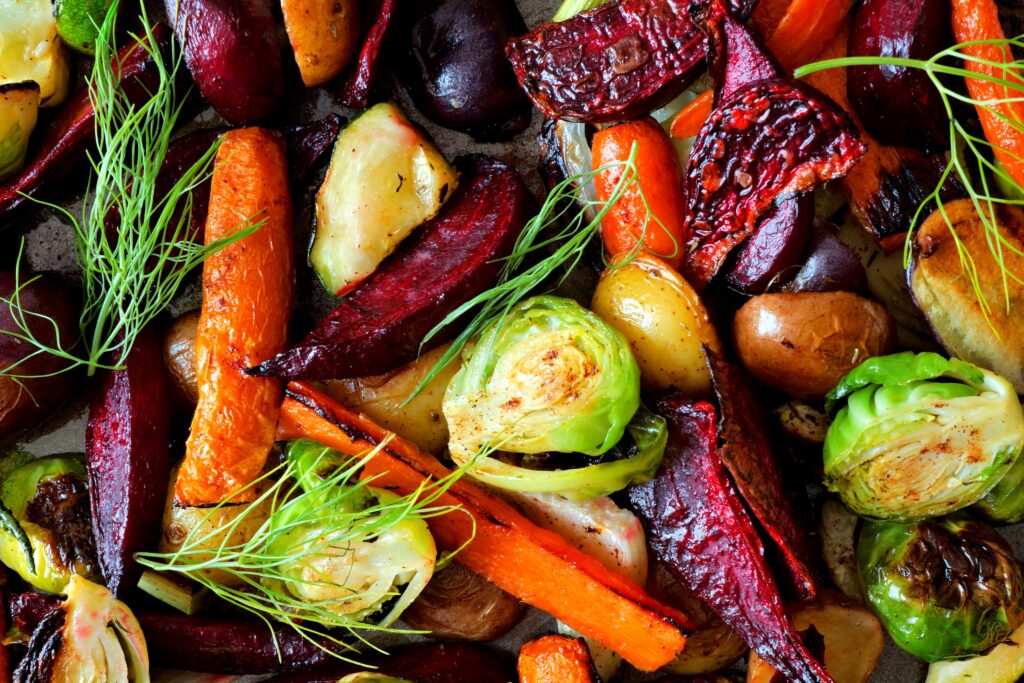
Natural GAINZ Magazine – Fiber: Soluble Vs. Insoluble
Most people know it’s recommended to get more fiber in your diet, but do you know the two different types of dietary fiber and the purpose of each?

ATHLETIC Magazine – Burn More Fat! With Peppers
That is right, you heard it correctly. Peppers. But not just any peppers.
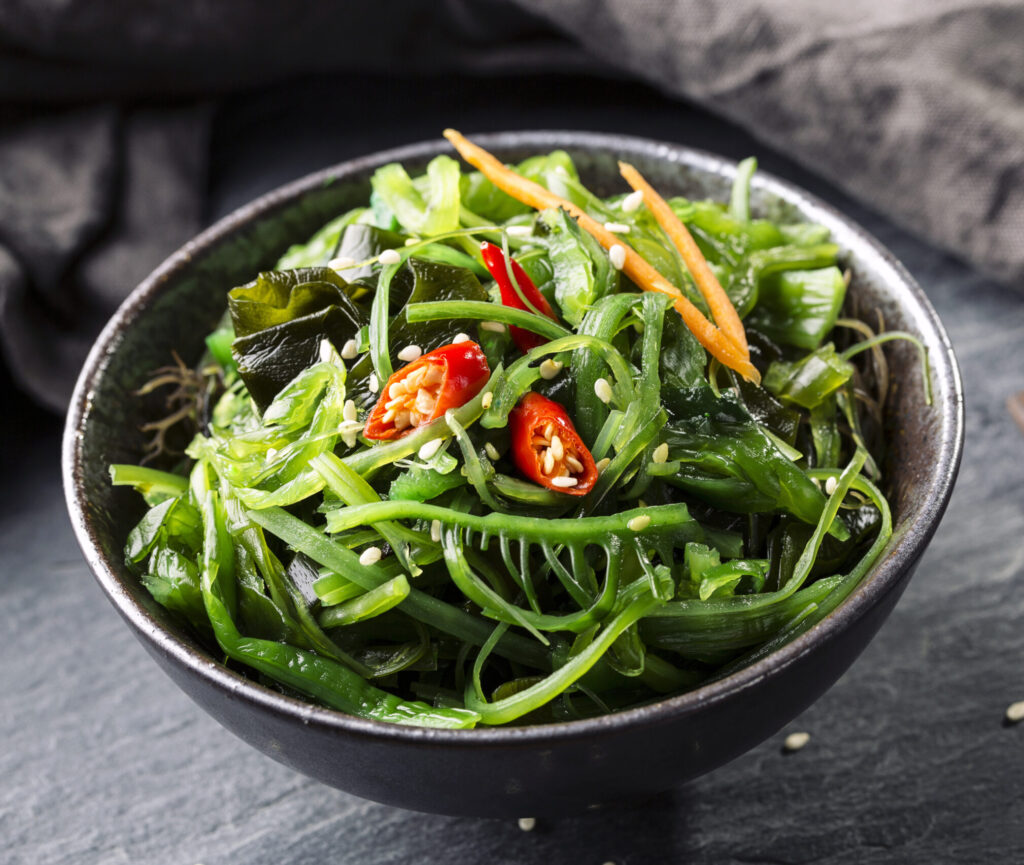
Natural GAINZ Magazine – Top Gut-Friendly Foods
A healthy gut is important to ensure proper brain functioning, which can positively affect all body functions.
